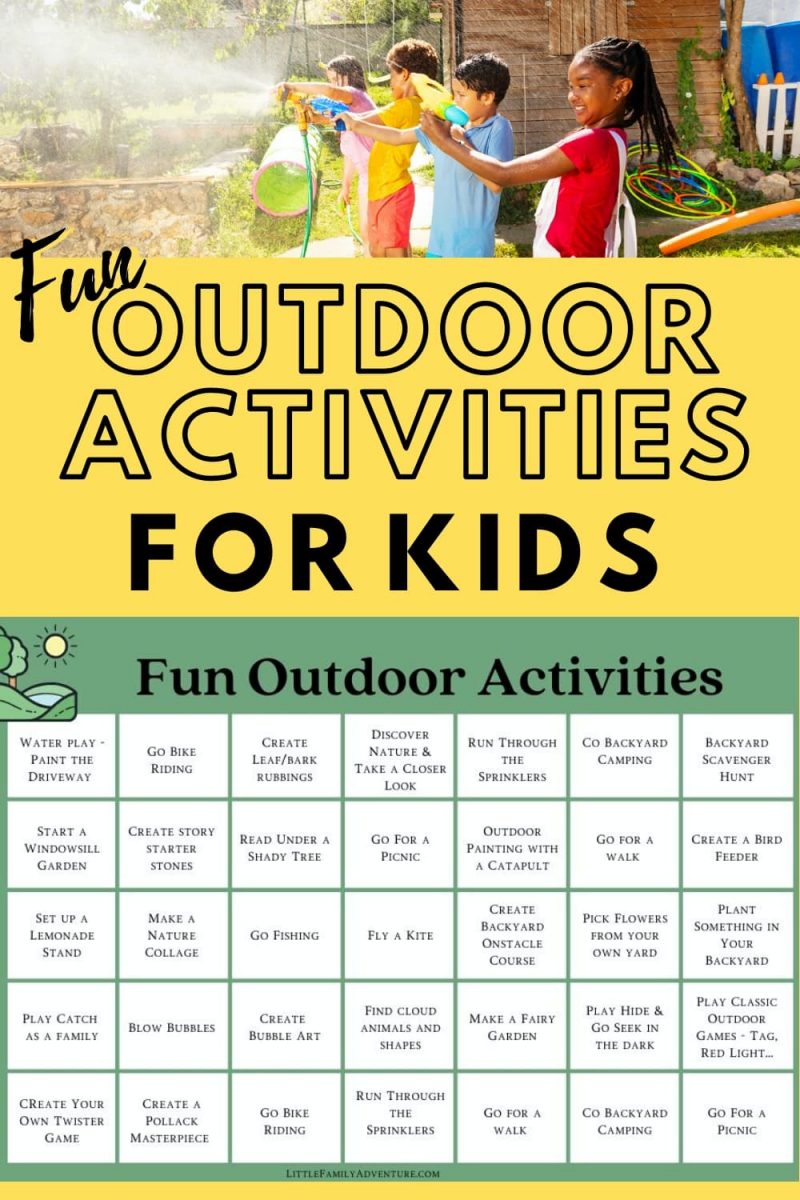Engaging children in outdoor activities not only fosters their physical health but also their cognitive and emotional development. The expanse of nature offers a myriad of free activities that can cultivate joy and learning, allowing children to explore their environment while simultaneously honing essential life skills. Herein lies an exploration of various outdoor activities to enjoy with children, providing a comprehensive guide to nurturing curiosity and vitality through play.
Outdoor activity encompasses a diverse array of experiences that can be adapted to different interests and age groups. The intrinsic value of interacting with the natural world helps children develop an appreciation for their environment, bolstering their social skills and creativity. The following sections outline an extensive variety of outdoor activities that are not only cost-effective but also enriching in nature.
Nature Walks and Scavenger Hunts
Exploring the local flora and fauna through nature walks is a quintessential outdoor experience. These walks can be augmented into scavenger hunts that deepen children’s engagement with the environment. A scavenger hunt involves children searching for specific items like different types of leaves, pine cones, insects, or flowers, stimulating their observational skills and nurturing a sense of adventure.
To enhance the experience, caregivers can create a checklist of items for children to find during the walk. This not only provides a clear objective but also encourages teamwork and communication when participants work together to complete their list. Children may learn to appreciate biodiversity, understanding the significance of various species within their ecosystem.
Moreover, nature walks can foster essential discussions about environmental stewardship. Highlighting the importance of conservation and the impact of human activities on natural habitats can be a significant learning experience, encouraging children to become proactive guardians of the Earth.
Creative Play with Natural Materials
The use of natural materials for creative play invites children to innovate and express their creativity, fostering cognitive skills. A simple outing can be transformed into an artistic extravaganza using leaves, twigs, stones, or flowers collected during the walk. Children can construct sculptures, create leaf rubbings, or form mandalas, thereby engaging their imagination.
Artistic endeavors using natural resources encourage fine motor skill development as children manipulate various textures and shapes. Additionally, this creative process promotes problem-solving and critical thinking; children often strategize on how to best utilize the materials at their disposal.
Involving children in artistic play encourages them to value the beauty of the outdoors. By fostering a connection with nature through creativity, children can develop a profound appreciation for environmental aesthetics and biodiversity. Such activities cultivate mindfulness, allowing children to absorb and reflect upon their surroundings.
Gardening as a Learning Experience
Gardening is an expansive outdoor activity that offers profound educational opportunities. Engaging children in the cultivation of plants catalyzes an understanding of biology, ecology, and nutrition. Whether it be a sprawling garden or a simple container planting, gardening can be tailored to fit any space.
Participating in gardening can help children develop responsibilities. They learn to care for plants, understand their growth cycles, and recognize the vital role of nurturing living organisms. Furthermore, gardening introduces children to sustainable practices, such as composting and organic gardening, which can have lasting effects on their lifestyle choices.
Children can also benefit from hands-on experiences that explore the relationship between food and health. By planting seeds and watching them grow, children gain insights into where their food comes from, enabling informed choices about nutrition and health. This serves as a catalyst for discussions about healthy eating habits and the significance of biodiversity in agriculture.
Organized Sports and Games
Sports and group games are vital in nurturing physical health and social interaction among children. Engaging in organized sports, such as soccer, basketball, or ultimate frisbee, encourages teamwork and fosters a sense of community. Playing outside eliminates the confines of structured environments, allowing for spontaneous play and adaptability.
Moreover, traditional outdoor games like tag, hide-and-seek, or capture the flag can be revitalized in local parks or backyards, promoting active play without requiring specialized equipment. These games stimulate physical endurance while cultivating interpersonal skills, as children navigate the dynamics of teamwork and friendly competition.
Engaging children in sports also elucidates the importance of fairness, respect, and discipline. These values, inherent in sports, can be translated into various aspects of life, fostering character development and emotional resilience.
Exploratory Play: Climbing and Outdoor Obstacle Courses
Creating opportunities for exploratory play, such as climbing trees or navigating outdoor obstacle courses, enhances physical fitness and spatial awareness. Climbing encourages risk assessment and builds confidence as children learn to trust their instincts and capabilities.
Obstacle courses can be constructed in a local park or even in a spacious backyard using natural elements such as logs and stones, or repurposed materials like hula hoops and cones. Children can engage in friendly competition, racing against each other while enhancing their problem-solving skills to navigate the course effectively.
Such physical activities can also help develop motor skills and promote cooperative play. Children learn to communicate and strategize as they tackle challenges collectively, forging stronger social bonds and enhancing their emotional intelligence.
The Importance of Mindfulness in Nature
Incorporating mindfulness practices into outdoor activities allows children to cultivate a deeper awareness of their surroundings. Simple exercises such as mindful walking or nature meditation can be introduced, guiding children to focus on their senses and appreciate the nuances of the natural world.
Mindfulness can enhance children’s emotional regulation and improve concentration, skills that are essential for their overall development. While engaging in outdoor activities, this practice encourages a holistic connection with nature, reinforcing the understanding of our role within the ecosystem.
Encouraging environmental awareness alongside mindfulness fosters a generation of children who are not only aware of their surroundings but also empathetic towards the environment. This profound connection lays the groundwork for future advocates of sustainability.
Conclusion
The varying outdoor activities explored herein not only promote physical health but also support the cognitive and emotional development of children. From nature walks and creative play to gardening and sports, each engagement offers unique benefits that enrich childhood experiences. By nurturing an appreciation for the outdoors and instilling values of teamwork, creativity, and environmental stewardship, caregivers can contribute significantly to the holistic development of children. Ultimately, the freedom of outdoor play cultivates a love for exploration, fostering lifelong curiosity and a commitment to preserving the natural world.









Leave a Comment